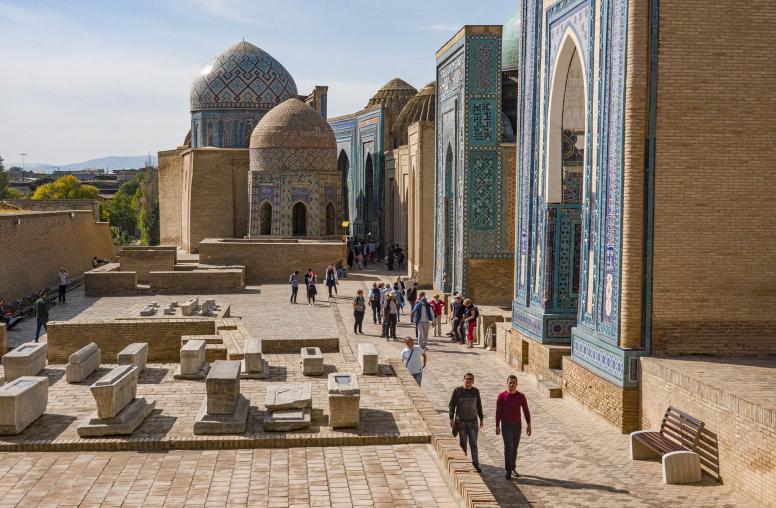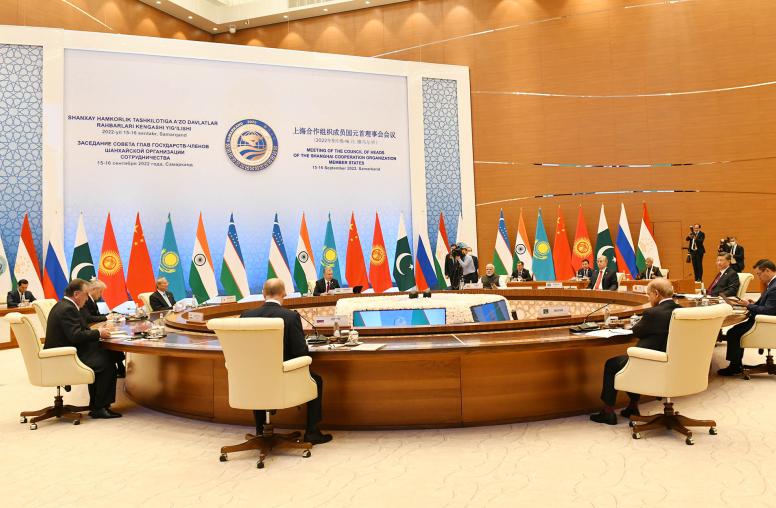Ted Feifer and Mike Lekson of the Education and Training Center/ International conducted the Institute's seventh workshop on negotiation skills in multilateral diplomacy for the Organization for Security and Cooperation in Europe (OSCE) in Vienna, June 8-10, 2009.
 Ted Feifer and Mike Lekson of the Education and Training Center/ International conducted the Institute's seventh workshop on negotiation skills in multilateral diplomacy for the Organization for Security and Cooperation in Europe (OSCE) in Vienna, June 8-10, 2009. Participants came from national delegations to the OSCE (Kazakhstan, Norway, Hungary, France, the Netherlands, and the U.S.), and from the Office of the OSCE Secretary General. The two participating Kazakhs are Foreign Ministry officers who will be serving in their country's delegation while Kazakhstan holds the OSCE chairmanship in 2010.
Ted Feifer and Mike Lekson of the Education and Training Center/ International conducted the Institute's seventh workshop on negotiation skills in multilateral diplomacy for the Organization for Security and Cooperation in Europe (OSCE) in Vienna, June 8-10, 2009. Participants came from national delegations to the OSCE (Kazakhstan, Norway, Hungary, France, the Netherlands, and the U.S.), and from the Office of the OSCE Secretary General. The two participating Kazakhs are Foreign Ministry officers who will be serving in their country's delegation while Kazakhstan holds the OSCE chairmanship in 2010.
Workshop objectives were to strengthen participants' analytical, negotiation, and planning skills used in multilateral diplomacy, and to increase their understanding of and ability to use the multilateral process to achieve their objectives more effectively. The workshop was completely reorganized and new materials were introduced this year.
The workshop engaged participants in a true-false discussion of the similarities and differences between bilateral and multilateral negotiation; demonstrated the challenges in multilateral diplomacy in a communication exercise; used a video excerpt from the film "The Godfather" to discuss negotiation principles in any situation in which there are multiple parties; used a  participant self-assessment on conflict management style to discuss styles as a negotiating tool; challenged participants to respond to common negotiation tactics in one-on-one exercises; and utilized an excerpt from the film "12 Angry Men" to illustrate the emotional pressures in negotiation and how to respond to them. Participants also applied their analytical and diplomatic skills in a complex multilateral simulation based on the management of a 1999 Horn of Africa conflict by the Organization of African Unity.
participant self-assessment on conflict management style to discuss styles as a negotiating tool; challenged participants to respond to common negotiation tactics in one-on-one exercises; and utilized an excerpt from the film "12 Angry Men" to illustrate the emotional pressures in negotiation and how to respond to them. Participants also applied their analytical and diplomatic skills in a complex multilateral simulation based on the management of a 1999 Horn of Africa conflict by the Organization of African Unity.
Participants gave this workshop on multilateral negotiation the highest evaluation it had ever received. One participant termed the workshop "useful, dynamic and interesting." Another noted the workshop's "good interaction and materials." The common negotiation tactics exercise was particularly appreciated. A participant noted the usefulness of being confronted with and having to react to an interlocutor using these tactics. The use of video was also an effective tool which, in the words of another participant, added dynamism and allowed them to watch various multilateral interactions and analyze them "from outside."



